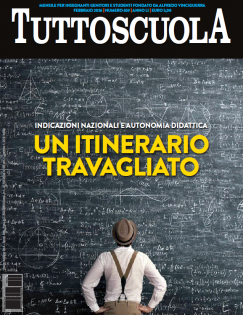
DIARIO. Indi e Sibilla, il diritto di vivere e quello di morire

Rubrica periodica bilingue, versione inglese in calce
Indi Gregory e Sibilla Barbieri sono gli ultimi due casi nei quali la vita e la morte interrogano la nostra coscienza morale, ci costringono a pensare “che cosa farei io se fossi il papà o la mamma di Indi, o se fossi il figlio di Sibilla?” Mi batterei, nel caso di Indi, per farla vivere fino a quando potrà? Ha fatto bene l’Italia a darle la cittadinanza italiana per portarla da noi al Bambin Gesù e aiutarla a vivere il più a lungo possibile? E “se fossi il figlio di Sibilla, la aiuterei a morire, come ha fatto lui?”
In un Regno Unito che sembra la spietata Repubblica di un Platone ben diverso da quello dei dialoghi socratici un tribunale ha deciso che Indi non ha diritto di vivere fin quando potrà: Indi morirà lunedì 13 novembre perché è “nel suo interesse”. Qual è il suo interesse, insomma, lo decide lo Stato. A Sibilla, invece, lo Stato italiano non ha riconosciuto il diritto di morire senza soffrire perché non aveva un “requisito”, quello di essere tenuta in vita da una “macchina”. Anche qui ha deciso lo Stato, applicando meccanicamente una sentenza della Corte Costituzionale. Così Sibilla, malata oncologica terminale, ha deciso di esercitare in Svizzera quello che riteneva un suo diritto: non quello di vivere ancora (sapeva che era impossibile) ma quello di come morire dignitosamente.
Due casi nei quali lo Stato ha mostrato il suo volto disumano: quello inglese negando ai genitori di Indi il diritto di decidere come accompagnare la figlia nella sua pur sofferta e breve esperienza di vita, quello italiano negando a Sibilla il diritto di scegliere come morire a casa sua, nel suo Paese. Comunque, nel caso di Indi l’Italia si è almeno mostrata sensibile e generosa, ma non così in quello di Sibilla. Perché?
Ecco, negli USA temi e interrogativi di questo genere sarebbero oggetto di lezioni di Civic Education in forma di debate, libero confronto tra gli studenti. Speriamo che lo si faccia anche da noi.
***
DIARY. Indi and Sibilla, the right to live and the right to die
Indi Gregory and Sibilla Barbieri are the last two cases in which life and death question our moral conscience, forcing us to think “what would I do if I were Indi’s father or mother, or if I were Sibilla’s son? “Would I fight, in Indi’s case, to make her live as long as she can? Was Italy right to give her Italian citizenship to bring her to us at Bambin Gesù and help her live as long as possible?” And “if I were the son of Sibyl, would I help her die, like he did?”
In a United Kingdom that seems like the ruthless Republic of a Plato very different from that of the Socratic dialogues, a court has decided that Indi has no right to live as long as she can: Indi will die on Monday 13 November because it is “in her interest”. In short, what is her interest is decided by the State. As for Sibilla, however, the Italian State did not recognize her right to die without suffering because she did not have a “requirement”, that of being kept alive by a “machine”. Here too the State decided, mechanically applying a ruling from the Constitutional Court. So Sibilla, a terminally ill cancer patient, decided to exercise in Switzerland what she considered her right: not that of continuing to live (she knew it was impossible) but that of how to die with dignity.
Two cases in which the State has shown its inhuman face: the English one by denying Indi’s parents the right to decide how to accompany their daughter in her painful and short experience of life, the Italian one by denying Sibilla the right to choose how to die in her home, in her country. However, in Indi’s case Italy at least showed itself to be sensitive and generous, but not so in Sibilla’s case. Why?
Well, in the USA, themes and questions of this kind would be the subject of Civic Education lessons in the form of debate, free discussion between students. Let us hope that this will be done in Italy as well.
© RIPRODUZIONE RISERVATA













Solo gli utenti registrati possono commentare!
Effettua il Login o Registrati
oppure accedi via